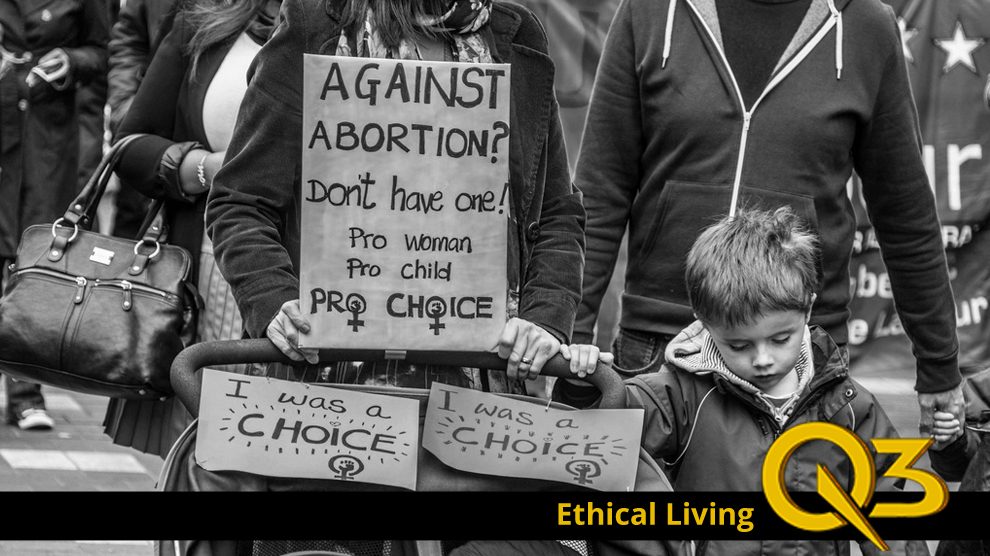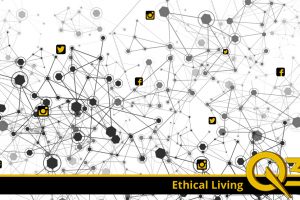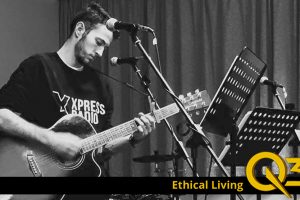by Yasmin Belgum
The ethics of banning abortion have been discussed throughout the world over the past few years. ItÔÇÖs been for a mixture of different reasons, as countries become more forward-thinking and disparities are highlighted in accessing healthcare. While the Abortion Act of 1967 was passed in the United Kingdom (apart from Northern Ireland), abortion is still not widely accessible throughout the world today. The law was voted through over 50 years to decriminalise abortion in the UK. From El Salvador to Northern Ireland to the Republic of Ireland, reproductive rights have been rapidly reoccurring in the public sphere. A renewed climate of discussions on women and reproductive control are seeing some states in the USA turn back the tide of Roe V Wade which decriminalised abortion in the USA.
Imelda Cortez was subject to abuse by her stepfather for years from the age of 12. She was rushed to hospital after her Mother found her heavily bleeding and in pain. She was taken to a hospital, where the doctors called the police as she expected she had an abortion. She gave birth in a latrine, charged with attempted murder and denied bail soon after the birth of her child.┬á Her stepfather was 70 years old. Cortez was put on trial for attempted murder and later released. HeÔÇÖs now been arrested and is awaiting trial
A lack of abortion services for people in Northern Ireland led one young woman to live-tweet her experience of leaving the island for the mainland of the United Kingdom where she would be able to access abortion under the handle @twowomentravel. A referendum was launched in the Republic of Ireland, which was won by a landslide in May 2018. Northern Ireland, however, extended their strict anti-abortion laws, but only in particular cases such as rape, incest or if thereÔÇÖs a danger to the life of the mother.
The ethics of banning abortion are questionable. An overwhelming amount of law and legislation has been inherited from monotheistic Abrahamic Judeo-Christianity and its dissemination, such as the idea of natural law. This is the idea that abortion goes against nature and that it goes against self-preservation because people inherently want to look after their children and young. St Thomas of Aquinas, a Catholic theologian and philosopher was the first to write this down and itÔÇÖs been influential since. Natural law is a hangover: IÔÇÖve rarely if ever, heard Natural Law used to discuss topics outside of the control of womenÔÇÖs bodies or i.e., the discussion of how usage of condoms is contrary to conceptions of natural law in reducing likelihoods of pregnancy.
Another argument is that the foetus can ÔÇ£feelÔÇØ the abortion, but research from the Royal College of Obstetricians and Gynaecologists has found that the foetus cannot experience pain before 24 weeks. There are other emotive arguments, too, that life begins at conception, foetuses can smile etc- but the most perverse pro-life myth come across is that abortions make you more likely to get breast cancer. ThatÔÇÖs not true, but all of these arguments are emotionally powerful.
Abortion has been fiercely articulated and legislated widely on both sides of the Atlantic. On the 46th anniversary of Roe v Wade, an abortion rights bill, New York has implemented their own bill called the Reproductive Health Act. It extends rights for people to access abortions at a time when other states like Ohio are looking to turn back the progress thatÔÇÖs been made. In New York, itÔÇÖs easier than ever to gain access to abortion, but this isnÔÇÖt the case with other states in the US. The House of Representatives in Ohio considered a bill just a few months ago that would actually outright criminalise abortion in the revisitation and rewriting of the concept of ÔÇ£humanÔÇØ to include ÔÇ£unborn humanÔÇØ. The penalties are astounding: any woman who gets the procedure and any doctor who performs the procedure can be charged with murder. In Ohio, the death penalty is still widely implemented for people who are found guilty of murder. Ohio isnÔÇÖt the only state, either, who are radically changing their laws to criminalise abortion.
In 2017, Southwark council became the third council to consider buffer zones around abortion clinics following protests by pro-life group 40 Day Vigil for Life outside clinics, meaning the protests would no longer take place so close to clinics. 40 Days for Life is an international, religiously-based pro-life organisation that undertakes a wide range of campaigning such as vigils, which they hold outside of abortion clinics and other places such as hospitals where people can access abortions. Women accessing the clinic in Southwark were subject to verbal harassment, images of dismembered foetuses and allegedly told that they would be haunted by their dead child. These actions directly led to the consideration of the buffer zone. The 40 Days for Life campaign is active in Cardiff on St MaryÔÇÖs Street, and you can find them on St MaryÔÇÖs Street opposite the British Pregnancy Advisory Service.
Abortion rights are human rights and itÔÇÖs not so much a question of (just) terminating a pregnancy, more a question of women’s reproductive control. Abortions will always happen, whether or not theyÔÇÖre legal, and thousands and thousands of people died across the world trying to access abortion. That situation hasnÔÇÖt changed today, where many places in the world have criminalised access to reproductive rights in the criminalisation of abortions- not to mention a lack of access. Even now in the UK, thereÔÇÖs shady access for women seeking an abortion: just look at Northern Ireland. But that might change.
Sarah Ewart is a woman from Northern Ireland whoÔÇÖs taken legal action, and a landmark case at Belfast high court may see Northern IrelandÔÇÖs abortion law in breach of the European Convention on Human Rights. She found out at her 19-week scan that her child had a fatal defect in that neither the brain or skull had developed properly. She was unable to find a doctor to perform an abortion and was forced to borrow money to travel to England to have an abortion. For the past five years, sheÔÇÖs campaigned tirelessly to make sure that nobody has to go what she goes through. ItÔÇÖs your right to choose what happens to your body. Having a choice is the first and foremost important thing in accessing healthcare. Against abortion? DonÔÇÖt worry- donÔÇÖt have one.










